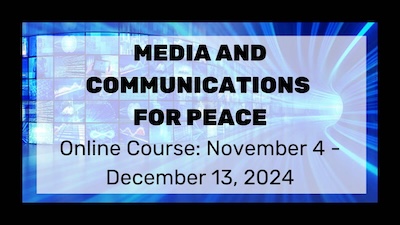By Guy Feugap, Africa Organizer of World BEYOND War, August 16, 2024
Violence and wars in Africa have been the causes of the phenomenon of out-of-school children, with far-reaching consequences on their education, in a society that is more and more militarized.
Wars have led to the displacement of families, forcing children to flee their homes and communities. This has disrupted their education, as many of them have ended up in refugee camps or temporary shelters where educational facilities are inadequate or do not exist.
In conflict areas, schools have been destroyed, making it difficult for children to access education or to undergo dangerous journeys to school because of violence. In these circumstances, in the case of Nigeria and Cameroon for instance because of Boko Haram attacks, many parents have refrained from sending their children to school, for they prefer their children not educated but alive rather than educated with the risk of dying at any second.
In South Sudan and in Somalia, decades of conflicts have severely impacted the education system, have led to the closure of many schools, and a significant number of children have been left out of school. Education has lost interest in African war-torn countries as Governments have diverted a lot of funds from education to military spending, further reducing the resources available for schools and teachers.
To raise awareness of the importance of education and involve young people in maintaining peace in schools, World BEYOND War chapters in Africa are working on peace education campaigns, with good examples of peace clubs in Burundi, Cameroon, and Mali. The Nigeria chapter is raising awareness of the threat to peace and national security posed by the growing phenomenon of out-of-school children, and exploring the opportunities that exist for getting more children into education.
We invite you to watch the recording of this webinar on the subject, organised as part of the activities marking the national congress of the Nigerian chapter of World BEYOND War.








